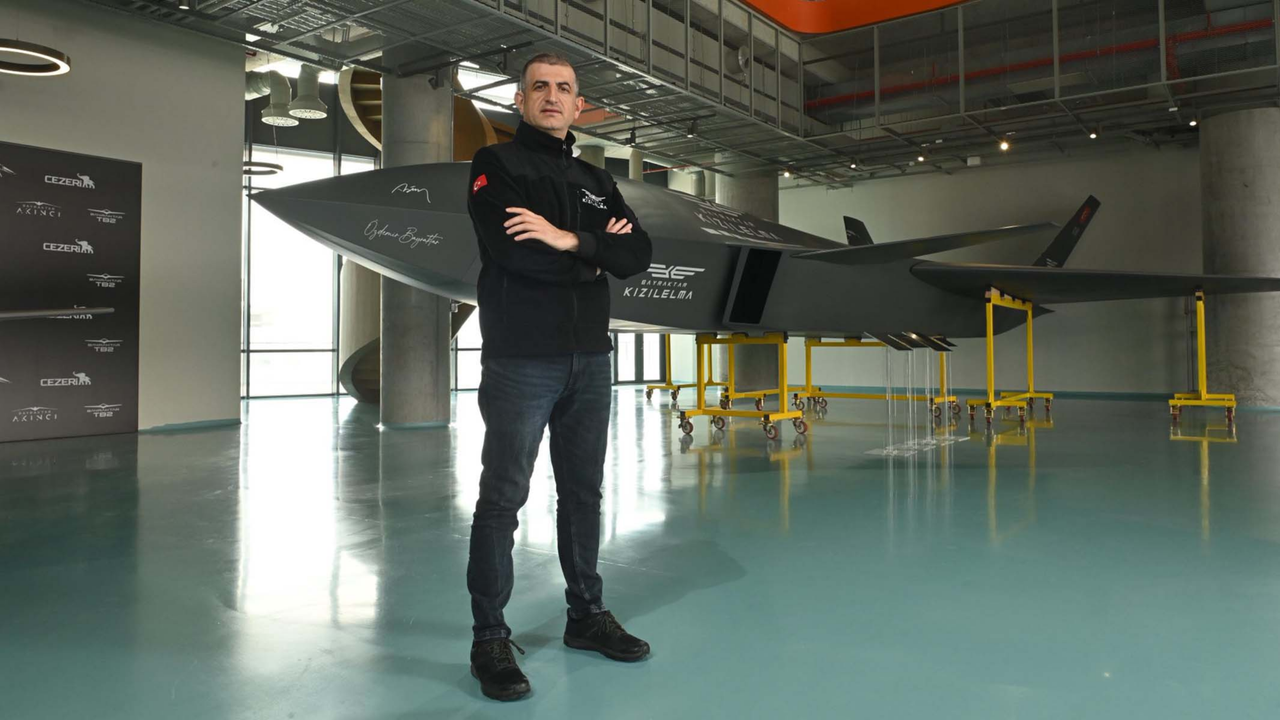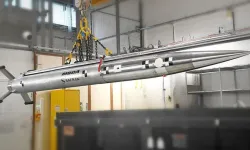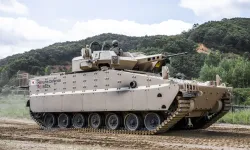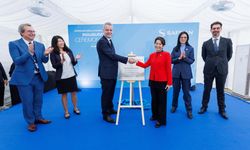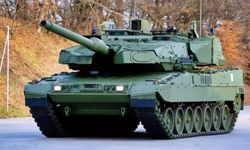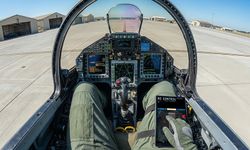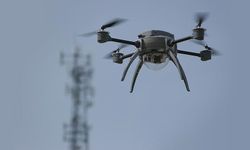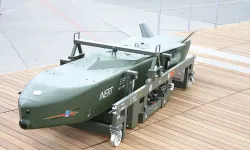Baykar, best known in Ukraine for producing the Bayraktar TB2 unmanned combat aerial vehicle, has grown from a small family business into one of the world’s leading drone manufacturers. In addition to the widely recognized TB2, the company develops and produces several other advanced systems, including the high-altitude AKINCI UCAV, the carrier-based TB3, the jet-powered unmanned fighter KIZILELMA, and the prototype flying car CEZERİ.
As reported by Olga Budnyk for Ukrinform.net, Baykar’s growth reflects both technological ambition and national purpose. According to company data, the Bayraktar TB2 fleet has logged more than one million flight hours in operational missions worldwide, symbolizing its maturity and reliability. Today, Baykar employs over 7,000 people at its facilities in Istanbul, while construction continues to expand production capacity both domestically and abroad. The company’s trajectory is particularly remarkable considering it began in 1986 as a small workshop producing automotive and aircraft components. Ukraine as a Key Partner in Baykar’s Global StrategyBaykar’s first export contract was signed with Ukraine in 2019, marking the beginning of a relationship that has since deepened beyond trade. Today, 90% of the company’s income comes from exports to 36 countries, with industry sources estimating that Baykar holds around 60% of the global UAV market. This makes it one of the most influential drone producers worldwide.
In 2024, Baykar acquired Piaggio Aerospace, a historic Italian engine manufacturer, and established a joint venture with Leonardo to co-develop next-generation unmanned systems. These moves expanded the company’s presence in Europe, underlining its long-term strategy of becoming not only a producer but also a strategic technology partner within the continent’s defense architecture. Company CEO Haluk Bayraktar explained that the foundation of Baykar’s work lies in Türkiye’s “National Technology Initiative,” aimed at achieving technological independence. “For us, this work was much more than a commercial activity — it was a national ideal,” Bayraktar said, emphasizing that the company’s success came through perseverance, long-term vision, and continuous collaboration with users in the field. Cooperation with Ukraine Goes Beyond CommerceThe partnership between Türkiye and Ukraine has become one of Baykar’s defining relationships. Bayraktar highlighted that cooperation between the two countries is grounded in solidarity and shared values. “Our relationship with Ukraine goes well beyond a simple trade agreement,” he said. “At the foundation of this relationship are friendship, independence, and territorial integrity.”
Türkiye was among the first to provide combat UAVs to Ukraine in 2018, and Bayraktar TB2s played a notable role in the early stages of the war. Later, Baykar donated drones to Ukraine, responding to international fundraising campaigns and demonstrating support for the Ukrainian people.
Construction of Baykar’s new factory near Kyiv began as a sign of long-term commitment to Ukraine’s defense industry. The facility, however, was recently damaged in a Russian strike. “The safety of our Ukrainian colleagues has been our top priority,” Bayraktar said. “No missile can hurt our friendship. The attack did not change our plans — we continue as scheduled.”
Engines and Technology ExchangeBaykar’s cooperation with Ukrainian partners extends to the field of engine production. For years, the company’s UCAVs have used engines manufactured in Ukraine. Although the full-scale war disrupted some supply chains, Bayraktar confirmed that collaboration continues.
He noted that Baykar is simultaneously strengthening local production and diversifying its sources. “We have built our own engine for the Bayraktar TB2, while the TB3 uses an indigenous Turkish engine developed by TEI,” he said. “For larger platforms such as AKINCI and KIZILELMA, we continue to rely on our Ukrainian partners.”
This cooperation, he added, is not only a matter of production but also of shared technological growth: several Ukrainian engineers currently work alongside Turkish counterparts at Baykar’s main facility in Istanbul. “We view this as mutual capability sharing rather than a one-sided training program,” Bayraktar said, pointing out that Ukrainian interns and specialists will form the core of the team at the future Kyiv plant.
KIZILELMA and the Future of Air Combat Among Baykar’s most anticipated projects is the Bayraktar KIZILELMA, an unmanned fighter aircraft expected to enter service with the Turkish Armed Forces in 2026. Described as a “revolutionary platform,” KIZILELMA is designed for high-speed, stealth, and autonomous operations. The company’s roadmap also includes the AI-powered mini cruise missile KEMANKEŞ and further iterations of the TB3, which recently completed flight tests from Türkiye’s amphibious assault ship TCG Anadolu, the world’s first UAV carrier. According to Bayraktar, the next decade will see a transition from individual drone platforms to intelligent, networked swarms controlled by advanced artificial intelligence — systems capable of collective decision-making on the battlefield. Investment in Youth and Inclusion During her visit to Baykar’s production facility, Olga Budnyk noted the youthful and diverse composition of the workforce. The company employs a large number of women and maintains an average employee age below 30. Bayraktar described this as a key part of Baykar’s philosophy. “Baykar is at the heart of a technological revolution led by young people and women,” he said. Through programs like Teknofest, the world’s largest aviation, space, and technology festival, Baykar engages thousands of students each year. Around 1,500 interns annually take part in hands-on work at the company, many of whom later join as full-time engineers. The company has also launched a “High-Altitude Talent Program” to recruit top university graduates directly into R&D teams and established Baykar Science High School to nurture future innovators from an early age. Expanding Toward Space and Global Security Looking ahead, Baykar aims to move beyond aviation into space technologies. The company plans to develop satellite constellations for secure communications and observation, along with orbital transfer vehicles for space logistics. “Just as we aimed for independence in the skies, we are now working to achieve the same in space,” Bayraktar said.He also expressed Baykar’s readiness to support regional initiatives such as Black Sea security cooperation, stressing that deterrence and situational awareness are vital to maintaining stability. “Our technologies are ready to serve the goal of ensuring that the Black Sea remains a sea of peace and stability,” he added.
A Symbol of Enduring PartnershipThe Bayraktar TB2, with over 1.25 million flight hours recorded, remains Baykar’s most successful product and a symbol of Turkish–Ukrainian collaboration. While the company could apply for a Guinness World Record, Bayraktar said that official recognition is secondary to operational success. “The real record is not entering a book but making a difference in the field,” he said.
Despite ongoing conflict and challenges, Baykar’s investment in Ukraine — from joint projects to shared technical expertise — continues to stand as a symbol of resilience and mutual trust. “Iron and concrete can be rebuilt,” Bayraktar emphasized. “What matters is our will and our friendship.”
